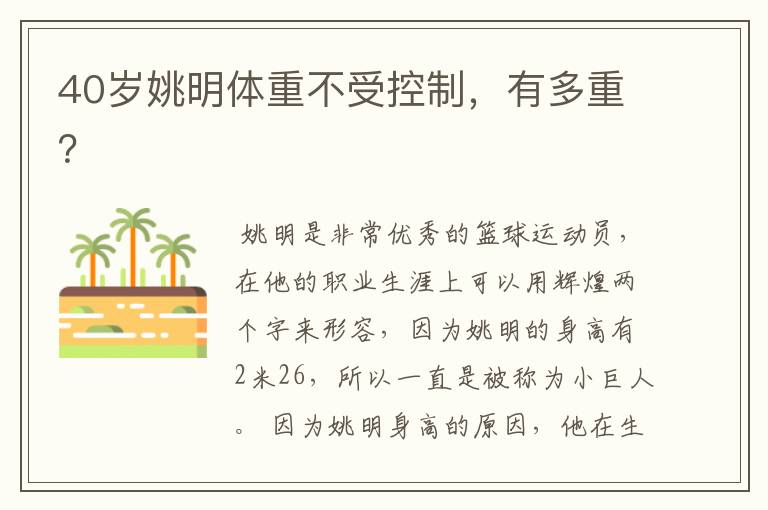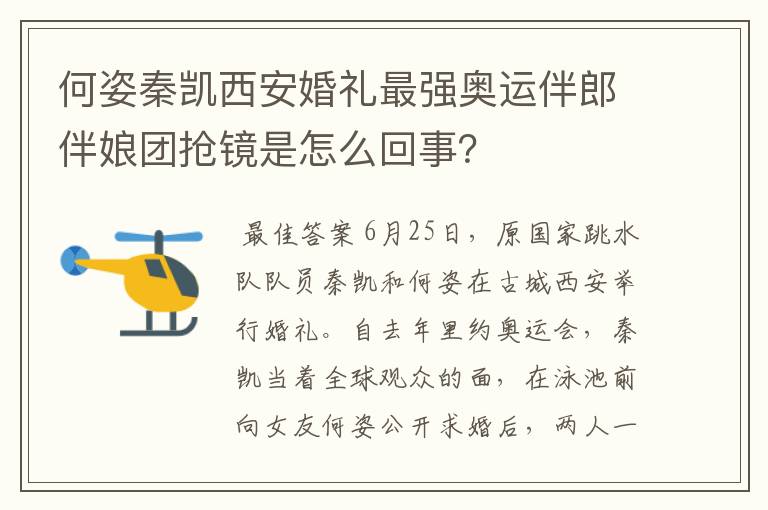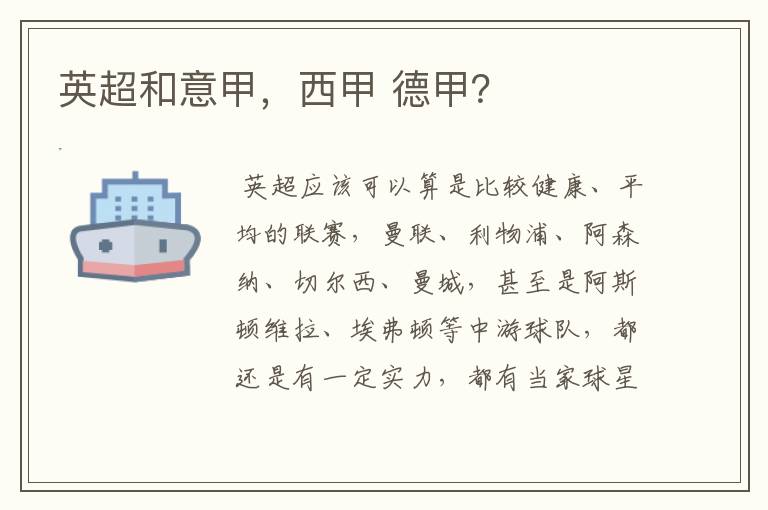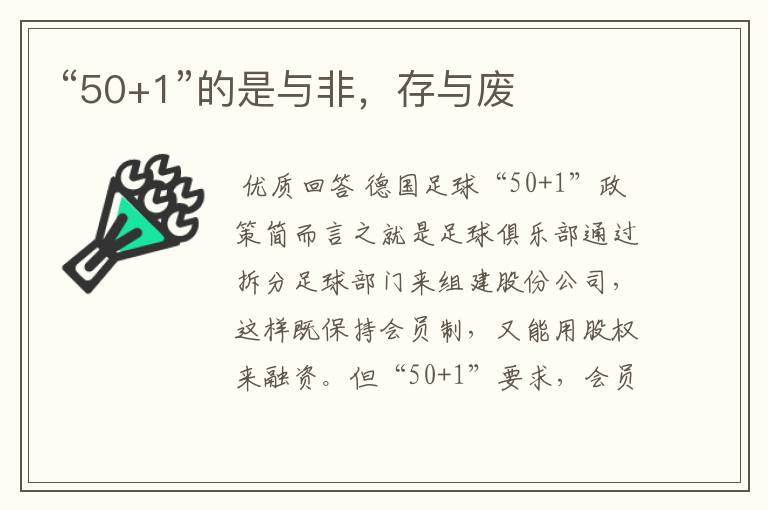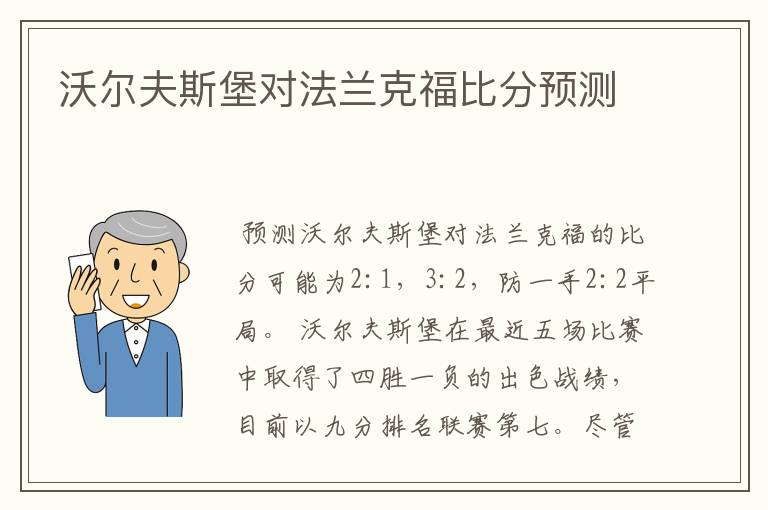奥运会冠军英文
今天运困体育就给我们广大朋友来聊聊奥运会冠军,希望能帮助到您找到想要的答案。
奥运金牌英文
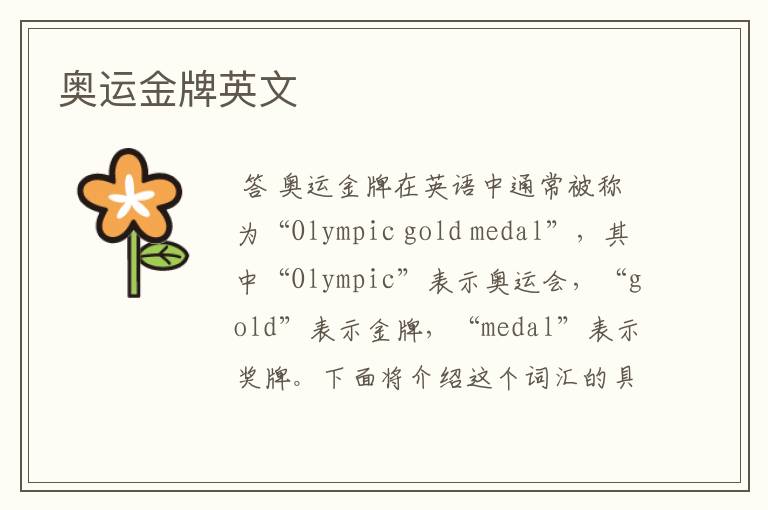
答奥运金牌在英语中通常被称为“Olympic gold medal”,其中“Olympic”表示奥运会,“gold”表示金牌,“medal”表示奖牌。下面将介绍这个词汇的具体用法和相关表达方式。
Olympic gold medal
“Olympic gold medal”是奥运会中获得的最高荣誉之一,通常是指在奥运会比赛中获得第一名的选手或团队所获得的金色奖牌。例如,“He won an Olympic gold medal in swimming”可以翻译为“他在游泳比赛中获得了一枚奥运金牌”。
Gold medalist
“Gold medalist”是指在比赛中获得金牌的选手或团队,其中“medalist”表示获奖者。例如,“She is a gold medalist in gymnastics”可以翻译为“她是一名体操的金牌获得者”。
Champion
“Champion”是指在比赛中获得第一名的选手或团队,通常也用于表示获得了冠军头衔的人。例如,“He is the Olympic champion in weightlifting”可以翻译为“他是举重比赛的奥运冠军”。
Winner
“Winner”是指在比赛中获胜的选手或团队,可以用于表示获得任何奖牌的人。例如,“She is a winner of three Olympic gold medals”可以翻译为“她获得了三枚奥运金牌”。
除了上述词汇,还有一些其他的表达方式可以用来描述奥运金牌,例如:
First place: 意为“第一名”,可以用于描述在比赛中获得第一名的选手或团队。例如,“He finished in first place and won the gold medal”可以翻译为“他获得了第一名并赢得了金牌”。
Top prize: 意为“最高奖项”,用于描述获得奥运会金牌的选手或团队。例如,“The top prize in the 100m race is the Olympic gold medal”可以翻译为“100米赛跑的最高奖项是奥运金牌”。
综上所述,“Olympic gold medal”是奥运会中获得的最高荣誉之一,通常用于描述在奥运会比赛中获得第一名的选手或团队所获得的金色奖牌。
冠军的英文怎么读
答冠军的英文为: champion
champion,英语单词,名词、动词、形容词,作名词时意为“冠军;拥护者;战士;人名;(英)钱皮恩;(法)尚皮翁”,作动词时意为“支持;拥护”,作形容词时意为“优胜的;第一流的”。
短语搭配:
The Champion 任我遨游 ; 冠军 ; 冠军球场 ; 冠军鞋
WORLD CHAMPION 世界冠军 ; 双料世界冠军
Praise Champion 歌颂冠军 ; 赞美歌冠军赛
Champion System 卓比奥斯 ; 香港卓比奥斯洲际队 ; 卓比奥斯车队 ; 冯俊凯
Intercontinental Champion 洲际冠军 ; 洲际冠军腰带
Champion Sword 冠军之剑
Olympic champion 奥林匹克冠军 ; 奥运会冠军
Fallen Champion 死灵勇士 ; 死灵猛士 ; 亡灵勇士
champion Partner 冠军搭档 ; 冠军合作伙伴 ; 冠军伙伴 [1]
相关例句:
He is achampionof women's rights.他是妇女权利的卫士.
He is the undisputedchampion.他是无可争辩的冠军。
He is achampionat writing familiar essays.他是写小品文的好手。
Every absurdity have achampionto defend it.任何谬论都拥有拥护它的斗士
奥运会冠军英文
答我觉的楼主问的不好,因为刘翔是110米栏冠军。你所说的奥运会冠军有很多。应该这样翻译:Liu Xiang has obtained 2,004 Olympic Games 110 meters fences champions
奥运信息 中英文对应的
答哈哈,找了这么多,老板给点消费吧,!
火炬:torch
福娃:friendlies
志愿者:volunteer
鸟巢:bird's nest
水立方:water cube
winner 优胜者
record holder 纪录保持者
cut the record 打破纪录
record breaker 打破创造者
set a new record 创造新纪录
world record 世界纪录
champion 冠军
runner-up/the 2nd place 亚军
third place/the 3rd place 季军
medalist 奖牌获得者
gold medalist 金牌获得者
silver medalist 银牌获得者
bronze medalist 铜牌获得者
last eight 取得决赛权的八名选手
final result 决赛成绩
total points 总分
placement/ranking 名次,排名
final placing 决赛名次
medal tally 奖牌榜
lost to 败给
defeat 击败
win title 夺魁
go for gold 夺取金牌
defend title 卫冕
road to 进军
victory and ceremony/awarding ceremony 颁奖仪式
The victory ceremony for … will now take place 颁奖仪式现在开始
announce results 公布成绩
The medals will be presented in descending order-1st, 2nd, 3rd. 按第一名、第二名、第三名顺序颁发奖牌。
raise national flag and play national anthem 升国旗,奏国歌
mount the rostrum 登上颁奖台
sportsmanship trophy 风格奖
fair play trophy 公平竞赛奖
cup/trophy 奖杯
prize money 奖金
prize/trophy/award 奖品
awarding/ to present prize 颁发奖品
title 称号
undertake laps of honor 绕场一周向观众致意
国际奥委会 the International Olympic Committee (IOC)
申办城市 the bidding cities
候选城市 the candidate cities
申办2008年奥运会 bid for 2008 Olympics
主办2008年奥运会 host the 2008 Olympic Games
奥林匹克精神 the Olympic ideals; the Olympic spirit
世界奥林匹克日 the International Olympic Day
环境保护 protect the environment
北京四环路 the fourth ring road in Beijing
城市基础设施建设 the city's infrastructure construction
最后的投票 make the final vote
绿色奥运 the Green Olympics
科技奥运 the Scientific Games
奥林匹克运动会 Olympics
赛跑 race
滑冰 skating
跳水 diving
游泳 swim
举重 weight lifting
足球 soccer\football
篮球 basketball
排球 volleyball
Aquatics(水上运动)
Swimming 游泳
freestyle 自由泳
backstroke 仰泳
breaststroke 蛙泳
butterfly 蝶泳
individual medley 个人混合泳
freestyle relay 自由泳接力
medley relay 混合泳接力
Water polo 水球
Diving 跳水
10m platform event 十米跳台
3m springboard event 三米跳板
synchronised diving from 10 m platform 双人十米跳台
synchronised diving from 3 m springboard 双人三米跳板
Synchronised swimming 花样游泳
Archery(射箭)
Individual events 个人赛
Team events 团体赛
Athletics(田径)
Track 径赛
100 m, 200 m, 400 m 100米,200米,400米
800 m, 1,500 m, 5,000 m, 10,000 m 800米,1500米,5,000米,10,000米
110 m hurdles, 400 m hurdles 110米栏,400米栏
3,000 m steeplechase 3000米障碍赛
4 x 100 m relay, 4 x 400 m relay 4×100米接力,4×400米接力
Jumping 跳跃
high jump 跳高
pole vault 撑杆跳高
long jump 跳远
triple jump 三级跳远
Throwing 投掷
shot put 推铅球
discus 掷铁饼
hammer 掷链球
javelin 标枪
Decathlon 男子十项全能
Heptathlon 女子七项全能
Road events 公路赛
marathon 马拉松
walk 竞走
Ball Games(球类运动)
Badminton 羽毛球
men\'s singles 男子单打
women\'s singles 女子单打
men\'s doubles 男子双打
women\'s doubles 女子双打
mixed doubles 混合双打
Baseball 棒球
Basketball 篮球
Football 足球
Handball 手球
Hockey / Field Hockey 曲棍球
Softball 垒球
Table Tennis 乒乓球
Tennis 网球
Volleyball 排球
Beach Volleyball 沙滩排球
Cycling(自行车)
Road cycling 公路自行车赛
Track cycling 场地自行车赛
sprint 追逐赛
time trial 计时赛
points race 计分赛
pursuit 争先赛
Mountain bike 山地自行车赛
============================
奥运会Olympic Games
奥运会选拔赛Olympic Trial
国际奥委会International Olympic Committee
奥运会会歌Olympic Anthem
奥运火炬Olympic Torch
奥运会代表团Olympic Delegation
奥运村Olympic Village
组委会organization committee
开幕式opening ceremony
闭幕式closing ceremony
吉祥物mascot
颁奖台podium
奥林匹克运动会 Olympics
赛跑 race
滑冰 skating
跳水 diving
游泳 swim
举重 weight lifting
足球 soccer\football
篮球 basketball
排球 volleyball
Aquatics(水上运动)
Swimming 游泳
freestyle 自由泳
backstroke 仰泳
breaststroke 蛙泳
butterfly 蝶泳
individual medley 个人混合泳
freestyle relay 自由泳接力
medley relay 混合泳接力
Water polo 水球
Diving 跳水
10m platform event 十米跳台
3m springboard event 三米跳板
synchronised diving from 10 m platform 双人十米跳台
synchronised diving from 3 m springboard 双人三米跳板
Synchronised swimming 花样游泳
Archery(射箭)
Individual events 个人赛
Team events 团体赛
Athletics(田径)
Track 径赛
100 m, 200 m, 400 m 100米,200米,400米
800 m, 1,500 m, 5,000 m, 10,000 m 800米,1500米,5,000米,10,000米
110 m hurdles, 400 m hurdles 110米栏,400米栏
3,000 m steeplechase 3000米障碍赛
4 x 100 m relay, 4 x 400 m relay 4×100米接力,4×400米接力
Jumping 跳跃
high jump 跳高
pole vault 撑杆跳高
long jump 跳远
triple jump 三级跳远
Throwing 投掷
shot put 推铅球
discus 掷铁饼
hammer 掷链球
javelin 标枪
Decathlon 男子十项全能
Heptathlon 女子七项全能
Road events 公路赛
marathon 马拉松
walk 竞走
Ball Games(球类运动)
Badminton 羽毛球
men\'s singles 男子单打
women\'s singles 女子单打
men\'s doubles 男子双打
women\'s doubles 女子双打
mixed doubles 混合双打
Baseball 棒球
Basketball 篮球
Football 足球
Handball 手球
Hockey / Field Hockey 曲棍球
Softball 垒球
Table Tennis 乒乓球
Tennis 网球
Volleyball 排球
Beach Volleyball 沙滩排球
Cycling(自行车)
Road cycling 公路自行车赛
Track cycling 场地自行车赛
sprint 追逐赛
time trial 计时赛
points race 计分赛
pursuit 争先赛
Mountain bike 山地自行车赛
============================
奥运会Olympic Games
奥运会选拔赛Olympic Trial
国际奥委会International Olympic Committee
奥运会会歌Olympic Anthem
奥运火炬Olympic Torch
奥运会代表团Olympic Delegation
奥运村Olympic Village
组委会organization committee
开幕式opening ceremony
闭幕式closing ceremony
吉祥物mascot
颁奖台podium
市民奥运英语100句
I. Good Wishes 祝愿用语
1. Good Luck!祝你顺利(祝你好运)!
2. All the best!祝你万事如意!
3. Have a good trip! 旅途愉快!
4. Wish you a success!祝你成功!
5. Have a good day! 祝你今天开心!
6. I hope to see you soon.我希望不久见到你。
7. Congratulations! 祝贺(你)!/恭喜!
8. Happy birthday! 生日快乐!
9. I wish you the best of health! 祝你身体健康!
10. Long live our friendship! 愿我们友谊长存!
II. Asking for and offering help请求提供帮助
11. Could you help me 你能帮助我吗
12. Would you please do me a favor 能帮我个忙吗?
13. Would you please give me a hand 帮我个忙好吗
14. What can I do for you 您需要什么帮助
15. Can(May)I help you 我可以帮你吗?
16. Let me help you. 我来帮助你。
17. It's very kind of you! 你真是太好啦!
III. Asking the Way 问路
18. Excuse me, can you tell me the way to the station
劳驾, 请问去车站怎么走
19. Straight on. 一直往前走。
20. Go down this street. Then turn left. 沿这条街走下去, 然后朝左拐。
21. Turn right at the second crossing. 在第二个路口往右拐。
22. I'm sorry. I have no idea where it is. 对不起,我不知道它在哪儿。
23. Thank you all the same. 尽管如此, 还是要你。
24. Is it far from here 离这儿远吗
25. Yes. You'd better take a bus. 远,你最好坐公共汽车去。
26. It's about 1 kilometer from here. 距这里约一公里。
27. Excuse me, does the Bus No. 4 stop at the China Trade Center 劳驾,
4路公共汽车在国贸停吗?
28. How long is the ride 坐车要用多长时间?
29. It will take about 20/twenty minutes. 大概需要20分钟。
30. Thank you very much. 非常感谢。It's a pleasure. 乐意为您效劳。
IV. Shopping 购物用语
31. Can I help you 您要买点什么?
32. Yes, I'd like to buy a book. 是的, 我要买本书。
33. Ok. Here you are. 行,给你。
34. How much is it 多少钱
35. It is seventeen yuan and fifty cents. 十七块五。
36. May I help you 您要买什么
37. Yes, I want to buy a shirt. 是的, 我想买一件衬衫。
38. What color/size/style do you want 要什么颜色/尺寸/样子的
39. A blue/red/green/yellow/white/black one. 蓝色的/红/绿/黄/白/黑
40. It's wonderful. I like it very much. 真不错。我非常喜欢。
41. All right. I'll take it. 好的, 我买这件衬衫。
42. Where can I pay 在哪付款?
43. You can pay at the cashier over there. 您可以在那边的收银台付款。
44. Can I use my credit card 我能使用信用卡吗?
45. Sure. Go ahead. 当然。请便。
46. Here's your change/receipt. 这是找您的钱/给您的收据。
47. Thanks for your good service. 你的热情服务!
48. Do come again, please. 欢迎再来。
49. Thank you. !You're welcome. 不用谢。
V. Restaurant English 饭馆英语
50. May I have a look at the menu/wine list 请给我看看菜谱/酒水单。
51. What's the specialty of this restaurant 这个餐馆的的招牌菜是什么?
52. Are you ready to order 您现在可以点菜了吗?
53. I'd like something spicy. 我想吃些辣的东西。
54. What do you recommend 有什么菜可以推荐一下吗?
55. The steak sounds good to me. 听起来牛排不错。
56. I'm full. I can't eat any more. 我饱了,不能再吃了。
57. Bill, please. 劳驾,结帐。
58. Keep the change. 不用找零钱了。
VI. Time, Days and Months 时间、星期和月份
59. What time is it 几点了
60. It's 6∶00 o'clock. 六点了。
61. Excuse me, could you tell me the time 劳驾,请问现在几点了
62. It's half past ten. 现在十点半。
63. Excuse me, have you got the time, please 对不起, 请问现在几点了
64. It's a quarter to nine. 现在差一刻九点。
65. What day is it today 今天是星期几
66. It's Sunday/Monday/Tuesday/Wednesday/Thursday/Friday/Saturday. 今天是星期天/周一/周二/周三/周四/周五/周六。
67. What's the date today 今天几号?
68. Today is Aug. 2nd. 今天是八月二号。
69. What month is it 今天是几月份
70. It's January/Feburary/March/April/May/June/July/August/September
/October/November/December. 现在是一月/二月/三月/四月/五月/六月/七月/八月/九月/十月/十一月/十二月。
71. When were you born 你哪年初生的?
72. I was born in 1949/nineteen forty-nine. 我1949年初生的。
VII. Entertaining Guests 招待客人
73. Hello! 您好! How are you doing 你好吗?
74. Hello! Welcome to our unit (home)! Sit down, please. 你好! 欢迎到我们单位(家)来!请坐。
75. Would you like a cigarette 您吸烟吗?
76. No. Thanks. 不,我不吸烟。。
77. Would you like to drink something, coffee, tea or cola 您想喝点儿什么,咖啡、茶,还是可乐?
78. Tea is fine with me. Thank you. 喝茶就行了。!
79. Help yourself to some fruits. 请随便吃点儿水果。
80. Give /Pass me a cup of tea/a glass of water, please! 请递给我一杯茶/。
81. Cheers! 干杯!
82. To our friendship! 为我们的友谊干杯!
83. Thanks a lot. 多谢。
VIII. Other Expressions 其它用语
84. What's the weather like today 今天天气怎么样
85. It's fine today. 今天天气很好。
86. Lovely day, isn't it 天气很好,是吧
87. Autumn is the best season here. 秋天是这里最好的季节。
88. Where are you from 您是哪里人
89. I'm from Hong Kong. 我是香港人。
90. Are you American 你是美国人吗
91. No, I'm Chinese. 不,我是中国人。
IX. Saying Goodbye 话别
92. When are you off 你什么时候走
93. I'm flying back on Sunday. 我星期天坐飞机回去。
94. Goodbye then and all the very best! 再见了, 祝你顺利!
95. Please say hello to your family. 请代问你的家人好。
96. I hope you'll come back to China again! 希望你能再来中国!
97. I'll do that. 我一定来。
98. See you again in the near future. 后会有期!
99. Take care. 多保重。
100. Goodbye! (See you!)再见!
参考资料:奥运英语学习网
我的梦想是奥运会冠军,谁能帮我英文演讲稿~~万分感谢
答Hello, everybody. Today our topic is " the Olympic Game is for all us".
If we want the Olympic Game is for all us, we should know something as the follows:
First, we should know the usual words of the Olympic Games:
奥运会Olympic Games
奥运会选拔赛Olympic trial
国际奥委会International Olympic Committee
奥运会会歌Olympic Anthem
奥运火炬Olympic torch
奥运会代表团Olympic delegation
奥运村Olympic village
组委会organization committee
开幕式opening ceremony
闭幕式closing ceremony
吉祥物mascot
颁奖台podium
Do you remember them We'll have a small test later.
Well, second, we should know the history about the Olympic Games.
The Olympic Games consist of the Games of the Olympiad and the Olympic Winter Games. Both take place every four years.
奥运会包括夏季奥运会和冬季奥运会,它们都是每四年举办一次。
Games held in ancient times on the plain of Olympia in Greece every four years. It was a time for laying aside political and religious differences, as athletes from all the Greek cities and districts competed. The games included patriotic and religious rituals as well as athletic contests, and high honors were given to the winners. The Greeks counted their years by olympiads (periods of four years) and dated events from the first Olympics in 776 b.c.
April 6, 1896, was definitely a day to remember. King George I of Greece announced the opening of the first International Olympic Games in Athens. A total of 245 athletes from 14 nations competed in the ancient Panathenaic stadium.
In this first modern Games, the winner was awarded a silver medal. The second athlete was given a bronze medal while the third athlete received nothing.
The Olympic Games deteriorated under Roman rule of Greece and were halted in the fourth century. They were revived in the late nineteenth century, with goals of peace and fellowship modeled on those of the ancient Olympics. The modern Olympics include many athletic events of the original games, such as the discus throw.
Then, let us know about the mascot of the Olympic Games.
Like the Five Olympic Rings from which they draw their color and inspiration, Fuwa will serve as the Official Mascots of Beijing 2008 Olympic Games, carrying a message of friendship and peace--and blessings from China--to children all over the world.
Designed to express the playful qualities of five little children who form an intimate circle of friends, Fuwa also embody the natural characteristics of four of China's most popular animals--the Fish, the Panda, the Tibetan Antelope, the Swallow--and the Olympic Flame.
Each of Fuwa has a rhyming two-syllable name--a traditional way of expressing affection for children in China. Beibei is the Fish, Jingjing is the Panda, Huanhuan is the Olympic Flame, Yingying is the Tibetan Antelope and Nini is the Swallow.
When you put their names together--Bei Jing Huan Ying Ni--they say "Welcome to Beijing," offering a warm invitation that reflects the mission of Fuwa as young ambassadors for the Olympic Games.
Fuwa also embody both the landscape and the dreams and aspirations of people from every part of the vast country of China. In their origins and their headpieces, you can see the five elements of nature--the sea, forest, fire, earth and sky--all stylistic rendered in ways that represent the deep traditional influences of Chinese folk art and ornamentation.
Spreading Traditional Chinese Blessings Wherever They Go
In the ancient culture of China, there is a grand tradition of spreading blessings through signs and symbols. Each of Fuwa symbolizes a different blessing--and will honor this tradition by carrying their blessings to the children of the world. Prosperity, happiness, passion, health and good luck will be spread to every continent as Fuwa carry their invitation to Beijing 2008 to every part of the globe.
At the heart of their mission--and through all of their work--Fuwa will seek to unite the world in peace and friendship through the Olympic spirit. Dedicated to helping Beijing 2008 spread its theme of One World, One Dream to every continent, Fuwa reflect the deep desire of the Chinese people to reach out to the world in friendship through the Games--and to invite every man, woman and child to take part in the great celebration of human solidarity that China will host in the light of the flame in 2008.
In China's traditional culture and art, the fish and water designs are symbols of prosperity and harvest. And so Beibei carries the blessing of prosperity. A fish is also a symbol of surplus in Chinese culture, another measure of a good year and a good life.
The ornamental lines of the water-wave designs are taken from well-known Chinese paintings of the past. Among Fuwa, Beibei is known to be gentle and pure. Strong in water sports, she reflects the blue Olympic ring.
Jingjing makes children smile--and that's why he brings the blessing of happiness wherever he goes. You can see his joy in the charming naivety of his dancing pose and the lovely wave of his black and white fur. As a national treasure and a protected species, pandas are adored by people everywhere. The lotus designs in Jingjing's headdress, which are inspired by the porcelain paintings of the Song Dynasty ( A.D.960-1234), symbolize the lush forest and the harmonious relationship between man and nature. Jingjing was chosen to represent our desire to protect nature's gifts--and to preserve the beauty of nature for all generations. Jingjing is charmingly nave and optimistic. He is an athlete noted for strength who represents the black Olympic ring.
In the intimate circle of Fuwa, Huanhuan is the big brother. He is a child of fire, symbolizing the Olympic Flame and the passion of sport--and passion is the blessing he bestows. Huanhuan stands in the center of Fuwa as the core embodiment of the Olympic spirit. And while he inspires all with the passion to run faster, jump higher and be stronger, he is also open and inviting. Wherever the light of Huanhuan shines, the inviting warmth of Beijing 2008--and the wishful blessings of the Chinese people--can be felt. The firery designs of his head ornament are drawn from the famed Dunhuang murals--with just a touch of China's traditional lucky designs. Huanhuan is outgoing and enthusiastic. He excels at all the ball games and represents the red Olympic ring.
Like all antelopes, Yingying is fast and agile and can swiftly cover great stretches of land as he races across the earth. A symbol of the vastness of China's landscape, the antelope carries the blessing of health, the strength of body that comes from harmony with nature. Yingying's flying pose captures the essence of a species unique to the Qinghai-Tibet Plateau, one of the first animals put under protection in China. The selection of the Tibetan Antelope reflects Beijing commitment to a Green Olympics. His head ornament incorporates several decorative styles from the Qinghai-Tibet and Sinkiang cultures and the ethnic design traditions of Western China. Strong in track and field events, Yingying is a quick-witted and agile boy who represents the yellow Olympic ring.
Every spring and summer, the children of Beijing have flown beautiful kites on the currents of wind that blow through the capital. Among the kite designs, the golden-winged swallow is traditionally one of the most popular. Nini's figure is drawn from this grand tradition of flying designs. Her golden wings symbolize the infinite sky and spread good-luck as a blessing wherever she flies. Swallow is also pronounced "yan" in Chinese, and Yanjing is what Beijing was called as an ancient capital city. Among Fuwa, Nini is as innocent and joyful as a swallow. She is strong in gymnastics and represents the green Olympic ring.
And, how Chinese people think and do for the Olympic Games
Chinese people always appreciate the purposes and principles of Olympic ideal, support the efforts of Olympic Games to promote world peace. The Chinese Government and people are doing our the utmost/best to prepare for the 2008 Olympic Games in Beijing, and shooting at the pageant with advocating Olympic ideal, sparkpluging world peace and enhancing the relationships among the world. Olympic spirit are gonna spread again in orient cultural ancient China.
中国人民一向赞赏奥林匹克精神的宗旨和原则,支持奥林匹克运动为促进世界和平所做的努力。中国政府和中国人民正全力以赴,做好2008年北京奥运会的筹备工作,力争把2008年奥运会办成一次弘扬奥林匹克精神、促进世界和平、增进各国人民友谊的盛会,让奥林匹克精神在中国这一东方文明古国 再次得到发扬。
Now, do you remember the usual words we learned at firstWe'll have a test 30 minutes later.
奥运会Olympic Games
奥运会选拔赛Olympic trial
国际奥委会International Olympic Committee
奥运会会歌Olympic Anthem
奥运火炬Olympic torch
奥运会代表团Olympic delegation
奥运村Olympic village
组委会organization committee
开幕式opening ceremony
闭幕式closing ceremony
吉祥物mascot
颁奖台podium
I think you know much about the Olympic Games.
At last, let us read a poem and listen to the Olympic Anthem.
今天的内容先分享到这里了,读完本文《奥运会冠军英文》之后,是否是您想找的答案呢?想要了解更多,敬请关注www.zuqiumeng.cn,您的关注是给小编最大的鼓励。
本文来自网络,不代表本站立场,转载请注明出处:https://www.zuqiumeng.cn/wenda/1236638.html
